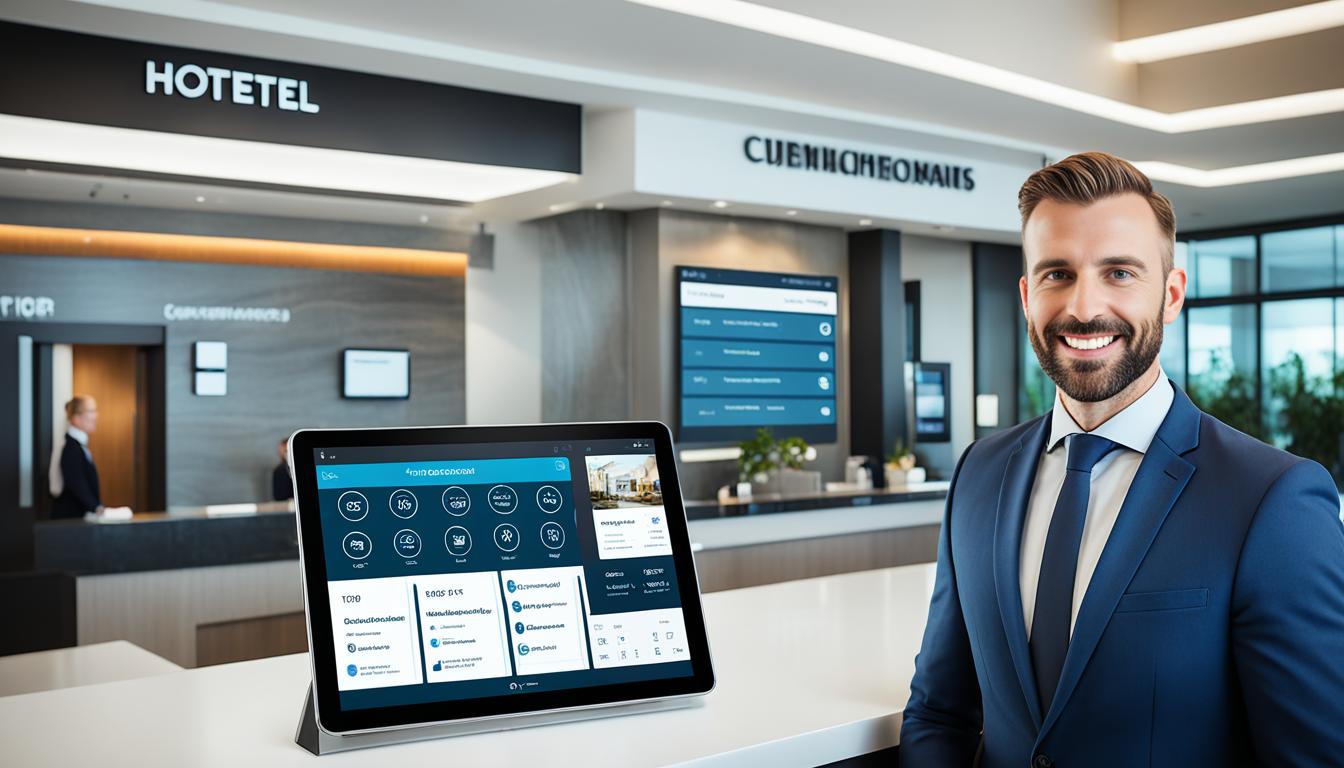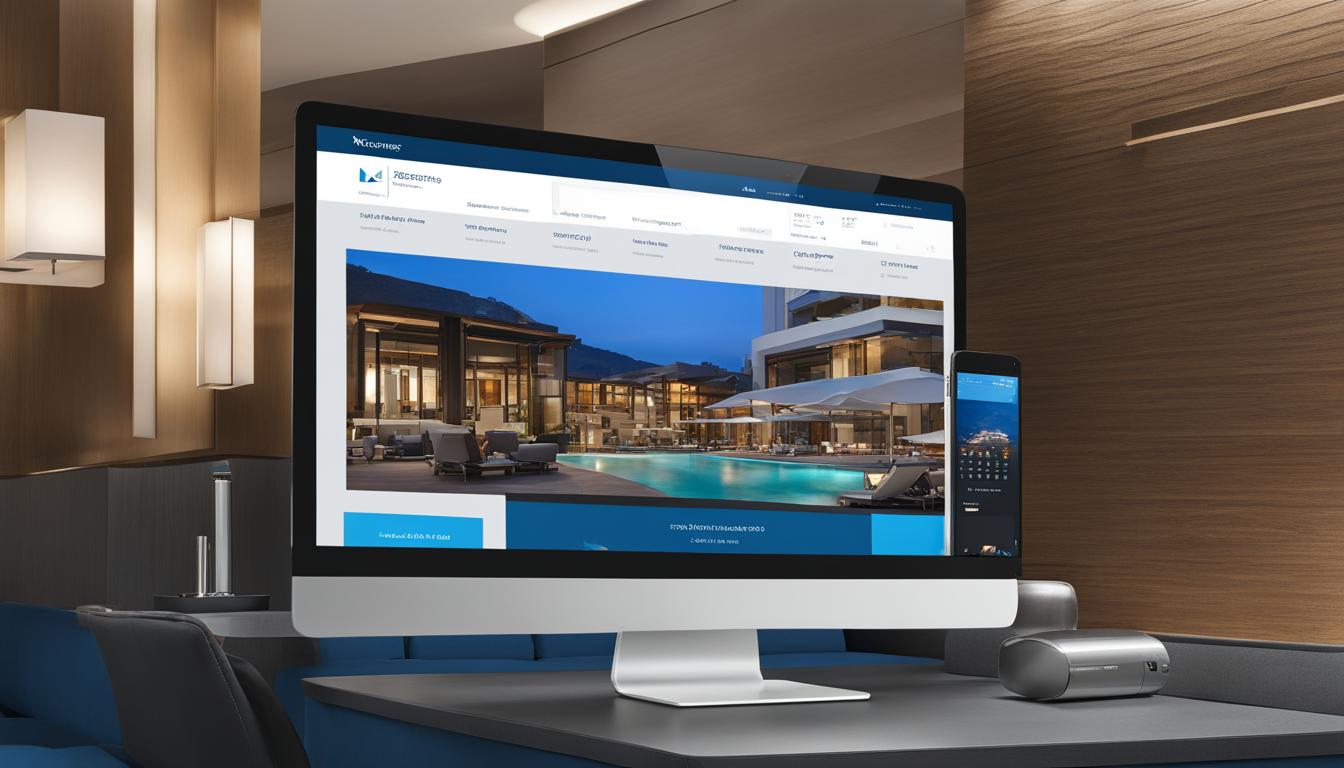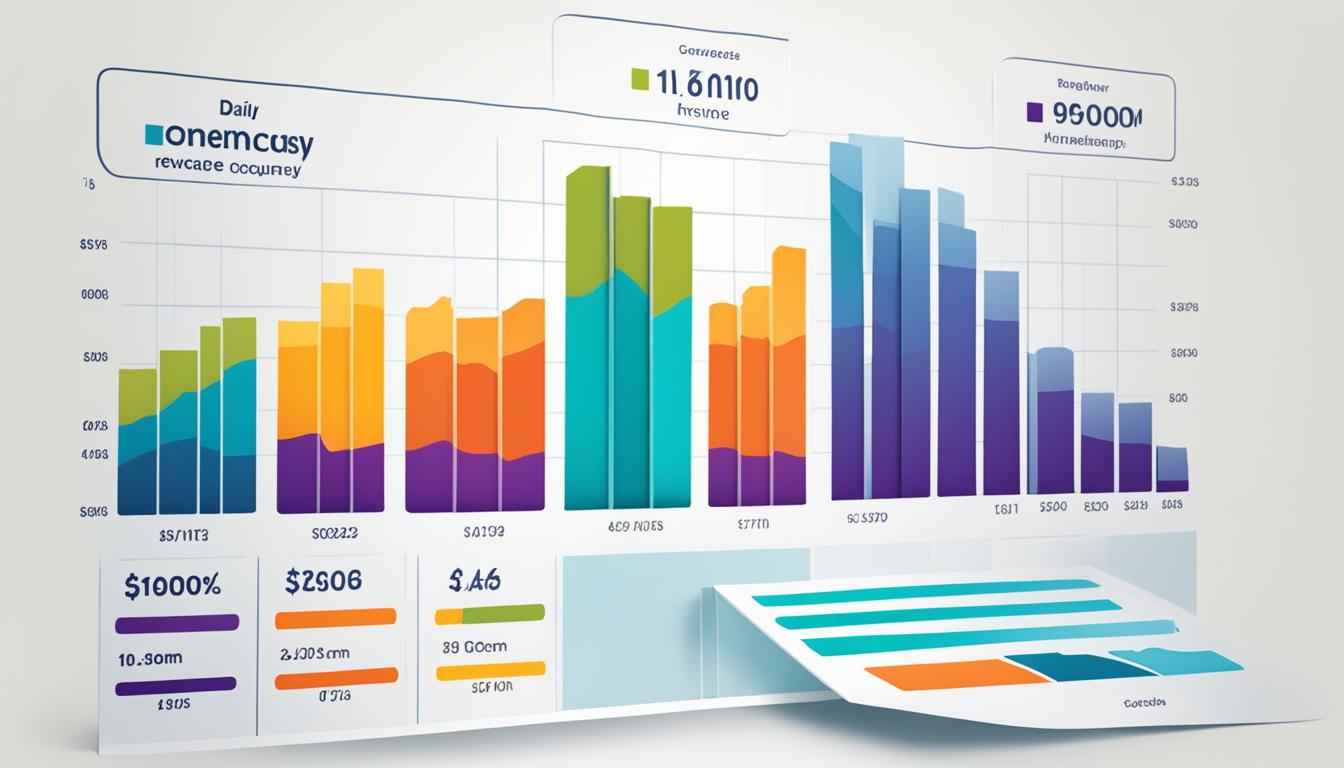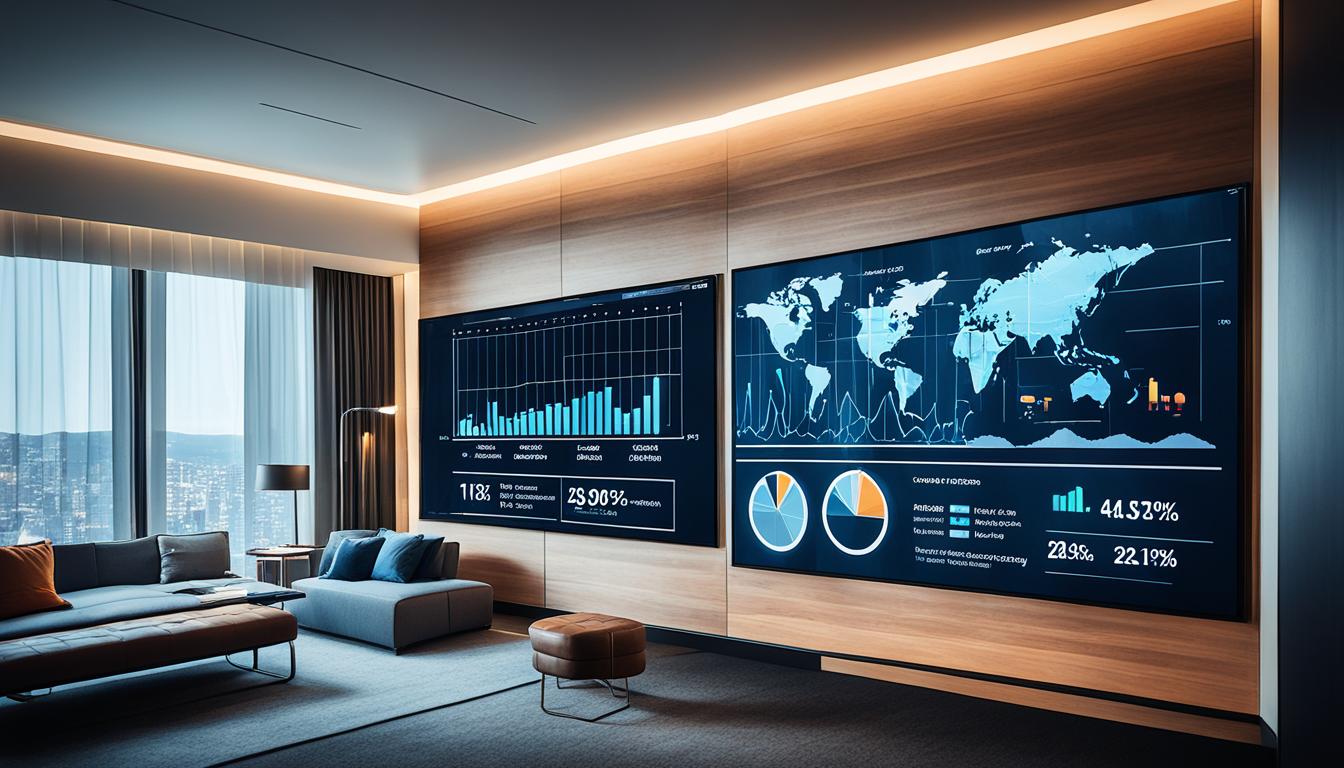Welcome to our article on implementing energy-saving practices in the workplace to promote sustainability and eco-friendly office initiatives. In today’s world, businesses are increasingly recognizing the importance of reducing their environmental impact and creating a sustainable office environment. By implementing energy-saving practices, companies can not only contribute to a greener future but also enjoy benefits such as cost savings and improved employee morale.
In this article, we will explore various strategies and initiatives that can be implemented to make your office more sustainable. From understanding the importance of employee morale to introducing hospitality management systems by PlanetHMS, we will provide valuable insights to help you create a green workplace.
Throughout the article, we will emphasize the connection between energy-saving practices, sustainability, and employee morale. By adopting eco-friendly initiatives and embracing sustainable office design, you can create a positive work environment that supports employee well-being and productivity.
Are you ready to make a difference? Let’s dive into the world of energy-saving practices and explore how they can transform your workplace into a sustainable oasis.
Understanding the Importance of Employee Morale
In order to create a positive work environment, it is crucial to understand the significance of employee morale. Employee morale refers to the overall satisfaction, motivation, and enthusiasm that employees have towards their work and the organization they are a part of. When employee morale is high, it has a direct positive impact on workplace satisfaction and productivity.
When employees are satisfied with their work and feel valued and appreciated, they are more likely to be motivated and engaged. This leads to increased productivity, as employees are willing to go the extra mile to achieve their goals. They are also more likely to collaborate with their colleagues, share knowledge, and contribute innovative ideas, creating a positive and productive work environment.
Employee morale also plays a vital role in the success of sustainability initiatives in the workplace. When employees are satisfied and motivated, they are more likely to support and participate in sustainability efforts. Sustainable practices, such as reducing energy consumption, minimizing waste, and promoting eco-friendly behaviors, align with employees’ values and create a sense of purpose and pride.
By fostering a positive work environment and prioritizing employee morale, organizations can enhance workplace satisfaction and productivity. This, in turn, boosts overall employee well-being and contributes to the success of sustainability initiatives, creating a win-win situation for both employees and the organization.
Introducing Hospitality Management Systems by PlanetHMS
PlanetHMS offers a comprehensive range of hospitality management systems that are designed to streamline operations, optimize efficiency, and enhance the overall guest experience. With a focus on sustainability and employee morale, these systems enable hotels to stay ahead in a competitive industry while driving positive environmental and social change.
One of the key products offered by PlanetHMS is the hotel channel manager. This powerful tool allows hotels to manage their online distribution channels more effectively, ensuring maximum visibility across various booking platforms while minimizing the risk of overbooking or underselling. By optimizing occupancy rates, hotels can reduce wastage and maximize resource utilization, contributing to a more sustainable operation.
The hotel booking engine is another essential component of PlanetHMS’ hospitality management system. This user-friendly interface enables hotels to offer real-time online reservations directly on their website, eliminating the need for potential guests to book through third-party platforms. By reducing reliance on intermediaries, hotels can build stronger relationships with guests and ultimately improve employee morale by fostering a sense of ownership and direct engagement.
PlanetHMS also provides a hotel website builder that allows hotels to create and maintain a modern and functional website, showcasing their unique offerings and facilities. With a user-friendly interface and customizable templates, hotels can effortlessly create a branded online presence, attracting potential guests and driving direct bookings. By reducing dependence on external web developers, hotels can save costs and unnecessary energy consumption.
Additionally, PlanetHMS offers a hotel event manager software, which simplifies the management of conferences, meetings, and other events. This software streamlines the event planning process, enhances communication between teams, and ensures a seamless guest experience. By optimizing event management, hotels can minimize waste and enhance sustainability efforts while providing exceptional service to event attendees.
By implementing hospitality management systems from PlanetHMS, hotels can take significant strides towards sustainability, all while improving employee morale. These systems enable hotels to optimize resource utilization, enhance direct bookings, reduce unnecessary energy consumption, and streamline event management. In doing so, hotels can create a more sustainable and efficient operation that aligns with both guest preferences and global environmental goals.
Boosting Employee Morale through Sustainable Office Design
Creating a green workplace is not only beneficial for the environment, but it can also have a profound impact on employee well-being and overall satisfaction. Sustainable office design incorporates elements that prioritize the health and comfort of employees while reducing the ecological footprint of the workspace.
One essential concept in sustainable office design is biophilic design, which aims to bring nature indoors. By integrating natural elements such as plants, natural materials, and water features, biophilic design creates a calming and rejuvenating environment. Studies have shown that exposure to nature within the workplace can improve productivity, reduce stress levels, and enhance overall employee well-being.
Another crucial aspect of sustainable office design is the utilization of natural lighting. Maximizing natural light not only reduces energy consumption but also provides numerous benefits to employees. Natural light has been proven to enhance mood, boost productivity, and regulate the body’s circadian rhythm. By incorporating large windows, skylights, and open spaces, sustainable office design ensures that employees have ample access to natural light, creating a more positive and energizing work environment.
Ergonomic furniture is another key component of sustainable office design. Providing employees with ergonomically designed chairs, desks, and workstations promotes proper posture and reduces the risk of physical strain and injuries. Comfortable and supportive furniture enhances employee well-being, leading to increased job satisfaction and decreased absenteeism.
Implementing sustainable office design not only benefits employees but also contributes to a more sustainable future. By integrating biophilic design, natural lighting, and ergonomic furniture, companies can create a work environment that fosters employee well-being, boosts morale, and promotes a green workplace.
Implementing Energy-Efficient Practices in Daily Operations
Creating an energy-efficient workplace not only promotes sustainable operations but also helps in reducing the carbon footprint. By implementing energy-efficient practices in your daily office operations, you can contribute to a more environmentally friendly and cost-effective working environment. Here are some practical tips to help you get started:
1. Use Energy-Efficient Appliances
Invest in energy-efficient appliances such as computers, printers, and kitchen appliances. Look for devices with ENERGY STAR ratings, which indicate higher energy efficiency and lower power consumption.
2. Optimize Heating and Cooling Systems
Ensure your heating and cooling systems are properly maintained to maximize efficiency. Clean or replace air filters regularly and consider installing programmable thermostats to adjust temperatures based on occupancy and working hours.
3. Promote Paperless Workflows
Encourage employees to embrace digital alternatives and reduce reliance on paper. Implement document management systems and cloud storage solutions to store and share files electronically. Use email and digital signatures instead of printing and mailing documents whenever possible.
Implementing these energy-efficient practices will not only help in reducing your carbon footprint but also contribute to sustainable operations. By making these small changes, you can create a workplace that is both environmentally friendly and cost-efficient.
Encouraging Employee Engagement in Sustainable Initiatives
Encouraging employee engagement in sustainable initiatives is crucial for creating a positive and impactful workplace. By involving employees in sustainable practices, organizations can foster a sense of ownership and ignite a collective effort towards a greener future.
One effective way to promote employee engagement is by providing opportunities for team participation. Encourage employees to collaborate and brainstorm ideas for sustainable initiatives. This not only fosters a sense of teamwork but also allows for the exchange of diverse perspectives, resulting in innovative solutions.
Employee recognition and rewards programs can also play a significant role in driving sustainable behaviors. Acknowledging and rewarding employees who actively participate in sustainable initiatives reinforces their dedication and motivates others to follow suit. It creates a sense of pride and purpose, further fueling employee engagement.
Remember, sustainable initiatives are about collective action. By involving employees, organizations can harness their creativity, passion, and commitment, making sustainability a shared responsibility and a cornerstone of the company’s culture.
To highlight the importance of employee engagement in sustainable initiatives, implement an employee spotlight or success stories section on your company’s intranet. Share stories of employees who have contributed significantly to sustainability efforts, showcasing their achievements and inspiring others to get involved.
Empowering Employees through Training and Education
In addition to fostering a culture of teamwork and recognition, organizations can promote employee engagement in sustainable initiatives by providing training and education. Conduct workshops or seminars to equip employees with the knowledge and skills needed to actively contribute to sustainability efforts.
By empowering employees with the necessary information, organizations enable them to make informed decisions and take action towards a more environmentally friendly workplace. These training sessions can cover topics such as energy conservation, waste reduction, and sustainable procurement practices.
Furthermore, organizations can leverage internal newsletters and communication channels to educate employees about the impact of their actions on sustainability. Regular updates and reminders about ongoing initiatives, as well as sharing success stories, can inspire and encourage greater participation.
Remember, employee engagement in sustainable initiatives is a continuous journey. Regularly evaluate and assess the effectiveness of your engagement strategies and seek feedback from employees. By actively involving employees in decision-making processes and addressing their concerns, organizations can create a culture of sustainability that inspires employees and drives meaningful change.
Communicating the Value of Sustainability to Employees
Effective sustainability communication is a crucial aspect of promoting green initiatives within the workplace. By clearly communicating the value of sustainability to employees, organizations can foster a sense of purpose and drive engagement in environmentally friendly practices. Here are some strategies for employee education and engagement:
Workshops and Training Programs
Conducting workshops and training programs on sustainability can empower employees with the necessary knowledge and skills to make eco-conscious decisions in their daily work lives. These sessions can cover topics such as energy-saving practices, waste reduction, and the importance of adopting green initiatives. By providing practical guidance and actionable tips, workshops can inspire employees to actively contribute to sustainable efforts.
Newsletters and Internal Campaigns
Regular newsletters and internal campaigns dedicated to sustainability can help maintain employee awareness and engagement. In these communications, organizations can share success stories, upcoming initiatives, and tips for sustainable practices. By showcasing the positive impact of green initiatives and highlighting employee contributions, newsletters and campaigns can reinforce the value of sustainability and foster a sense of collective responsibility.
Employee Recognition and Incentives
Recognizing and rewarding employees for their sustainable behaviors can significantly boost engagement and motivation. This can be done through formal recognition programs, such as “Green Champion of the Month,” where employees who consistently demonstrate sustainable practices are acknowledged. Additionally, offering incentives like gift cards or extra vacation days can further encourage employee participation in green initiatives, reinforcing the importance of sustainability in the workplace.
By implementing these strategies, organizations can effectively communicate the value of sustainability to employees, creating a shared understanding of the benefits it brings. This not only improves employee morale but also strengthens the organization’s commitment to environmental responsibility.
Conclusion
In conclusion, implementing energy-saving practices in the workplace not only contributes to sustainability but also has a profound impact on employee morale. By creating a sustainable office environment, businesses can benefit from increased workplace satisfaction, productivity, and overall employee well-being.
We have explored various strategies and initiatives that can be implemented to achieve these goals, such as sustainable office design, energy-efficient practices, and employee engagement in sustainable initiatives. By embracing these practices, companies can reduce their carbon footprint, promote eco-friendly behaviors, and create a positive work culture that values sustainability.
If you are looking for assistance in implementing sustainable initiatives in your workplace, PlanetHMS can provide the necessary tools and support. Whether you need a hotel channel manager, hotel booking engine, hotel website builder, or hotel event manager software, PlanetHMS offers a range of hospitality management systems to help you achieve your sustainability goals. Reach out to PlanetHMS at [email protected] for more information and guidance on transforming your office into a sustainable and employee-friendly space.







